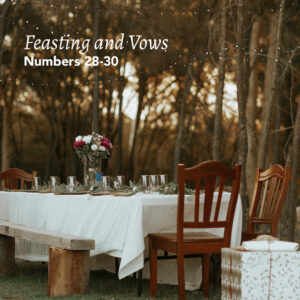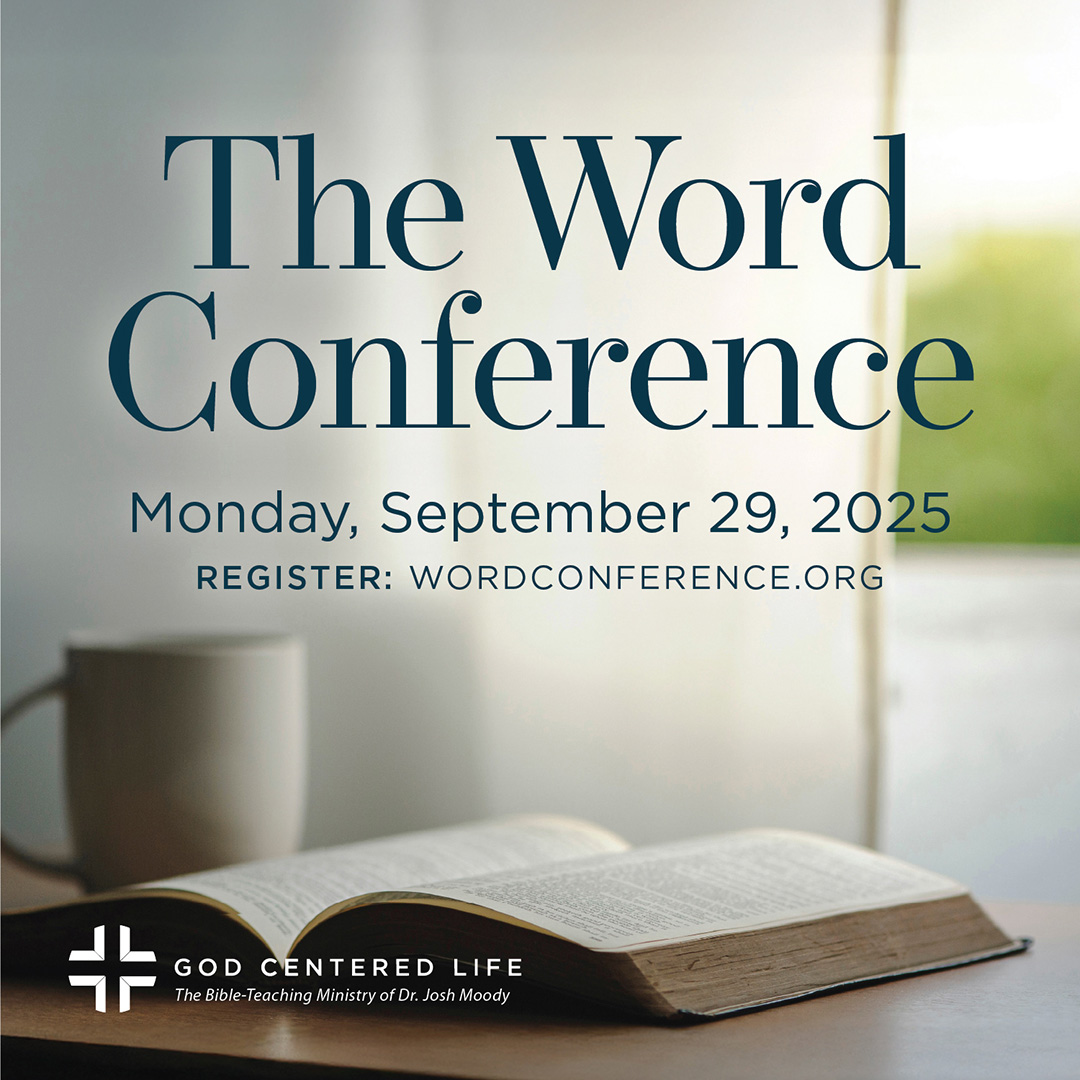Numbers 28-30: Feasting and Vows
March 12, 2024
TODAY'S BIBLE READING:
Numbers 28-30, Psalm 59, Matthew 25:1-13, Romans 8:1-17

Numbers 28 and 29 are a wonderful description of the intended rhythm of the ancient people of God with regard to their festivals, feasts, sacrifices, from daily, to weekly, to the great annual feasts as well. Each of them is intended to remind God’s people to give thanks to God, and to find in sacrifice atonement for their sins. In the perspective of the New Testament these feasts take on fresh meaning as precursors to the revelation of the Son of God who fulfills all the prophesied elements of these feasts and sacrifices and the typology therein. John’s Gospel, many think, has elements of the feast rhythm within its structure, and at any rate, of course, Jesus’ sacrifice on the cross is presented as a Passover sacrifice—no, as THE Passover sacrifice, of which the others were merely shadows. He is THE “Lamb of God who takes away the sin of the world” (John 1:29). And Luke likewise indicates that the gift of the Holy Spirit, which the ascended Christ has poured out on his people, came at the great “Feast of Weeks,” or as we would call it now, “Pentecost” (Acts 2).
Numbers 30 is a little obscure at first glance (and perhaps a little bit after first glance, too!). It seems to be about rules regarding keeping your word. Some have made the accusation there is a distastefully patriarchal element to it, whereby the vow of a daughter at home may be overridden by her father, and similarly the vow of a grown woman may be overridden by her husband (30:3-8). One must remember that men in this ancient society, and today too, are viewed as protectors and honorable guards of the honor of their families. No man is to be a wimp, passive, certainly not passive-aggressive, but is to take the lead in looking after the family that bears his name. That is not to say that he rules the roost in a domineering, arrogant sense: all leadership that is Christian must bear the hallmarks of Christ’s style of leadership, which is described as “servant” leadership (Phil. 2:1-11).
That is how Paul tells husbands to look after their wives: to give up and sacrifice their own lives for them, as Christ died for the church. The husband therefore is being called to self-sacrificial leadership (Eph. 5:25-33). Obviously in different cultures and at different times, with different personalities and in different giftings, the nature of this relationship between husband and wife will look different. From a New Testament perspective, what is remarkable is not how much is said about how a husband and wife, father and children, mother and children, a family, are to get along, but how little: if we took all the books that have been written this year alone on the subject of family values and the like, we would outweigh the content of Scripture on the subject by many, many times. The Bible gets to the essence of the matter, that a wife is to respect her husband (Eph. 5:33), and a husband is to love his wife as Christ loves the church (Eph. 5:25). We do not live in ancient Israel, but we do live in Christ’s church and are to follow his model for living, as Paul describes that.
So with feasting and celebration, we also are to have a rhythm of life that constantly reminds us to give thanks to God for what he has done by rescuing us from our sins; to take a day of rest to worship God specifically in the community of the local church; to be regular in our daily Bible readings as we feed on God’s Word; to attend to the preaching of God’s Word as often as we can; and to celebrate with other believers the joy of being part of the redeemed family of God. And then to more prosaic responsibilities at home, as well as at work, our word is to be our bond.
ABOUT THE AUTHOR
Josh Moody (Ph.D., University of Cambridge) is the senior pastor of College Church in Wheaton, IL., president and founder of God Centered Life Ministries, and author of several books including How the Bible Can Change Your Life and John 1-12 For You.
WANT MORE?
To receive God Centered Life devotionals directly in your inbox, as well as other resources, enter your email address in the form at the bottom of this page and click "subscribe."


